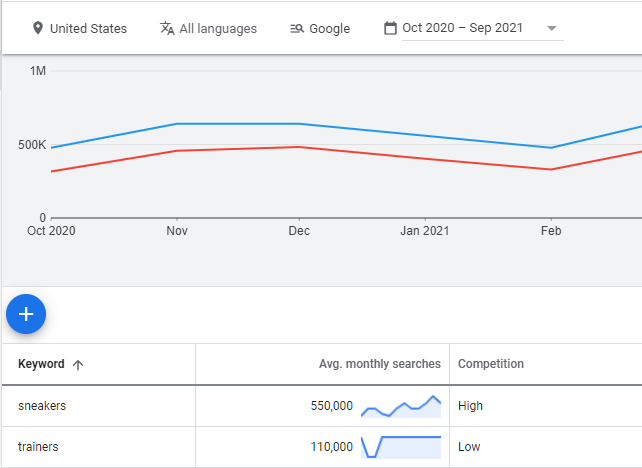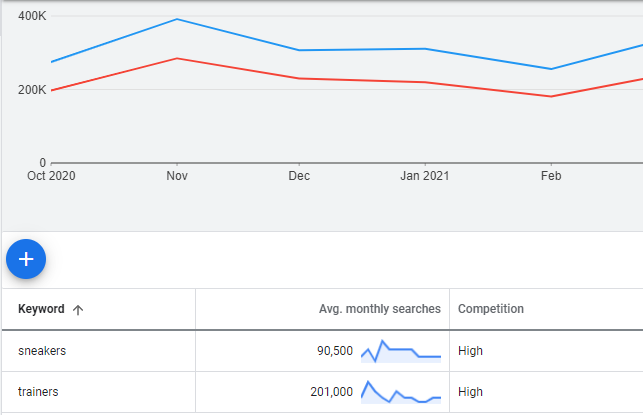Why You Should Never Translate Your Keywords


Hint: The process is much more in-depth than literal translation
We have all heard the stat that “X% of internet users will only purchase from a retailer that has a website in their language.” So it seems counterintuitive to say you should not translate your keywords to native languages that you are competing in.
That is to say, you should not use literal translation for your keywords; rather, you need to do thorough multilingual keyword research. Let’s take a look at the proper ways to conduct multilingual keyword research, focusing on the potential problems that marketers face when they simply translate keywords.
Differences in Regional Nuances
Just as languages differ from country to country, end users also search for similar products and services online in different ways. Even in countries that share the same primary language, end users look for similar products differently.
Imagine you are a shoe manufacturer and you are trying to sell your brand new running shoes. In the US, you might optimize your pages to capture end users who are searching for “sneakers.” You would be on the right track because the term sneakers is not only a keyword that has a great deal of online traffic (see US traffic forecast below) but also much more in line with how end users truly speak in the US market.

Now, take the same example of the shoe manufacturer, but look at the UK as the target market. The highest amount of valuable traffic comes from the keyword “trainers,” as you see in the chart below. By optimizing your page to the term “trainer,” you could get more than twice the amount of high value traffic and more conversions.

Balancing Act Between Culture and Keywords
The way an end user searches online (specifically what phrase they enter into the search bar) is directly influenced by their culture. In the earlier days of search, people would perform searches based on how they thought the search engine would think.
As Google and other search engines continued to evolve, they started to account for how the end users would search. This allows search engines to fully understand what end users mean when they are searching for something online in multiple ways, including the use of slang.
The problem is that most machine translation tools either do not account for cultural variances of terms or are slower to adapt to them. Even Google Translate is slow to adapt cultural nuances in phrases or slang. This is a problem that international SEO experts have to account for every day.
Search Volume Varies from Country to Country
While it is possible that terms and expressions might be universal across borders (e.g., the terms “reasonable” or “inexpensive”), they might not reflect how the local market searches online.
Such was the case that our partners at Webcertain encountered while working with an international hotel chain. The request was to translate the targeted keywords directly from English to French. The main concern that was shared with the client was that the search volumes would not be sufficient to warrant the exercise.
|
English Keyword |
Search Volume (UK) |
French Translation |
Search Volume (FR) |
|
Cheap Hotel |
135000 |
Hotel pas cher |
8100 |
|
Budget Hotel |
14800 |
Hotel budget |
0 |
|
Low Cost Hotel |
480 |
Hotel bas cout |
0 |
|
Economy Hotel |
260 |
Hotel classe economique |
0 |
As you can see, the exercise of simply translating the targeted keywords would yield very little results. While not doing thorough keyword research may save you costs in the short-term, in the long-term, the cost of potential lost traffic would be far greater.
In the same case study of the hotel, this is what effective keyword research looks like in comparison to simply translating keywords.
|
French Translation |
Search Volume (FR) |
French Keyword Research |
Search Volume (FR) |
|
Hotel pas cher |
8100 |
Hotel pas cher |
8100 |
|
Hotel Budget |
0 |
Hotel pas chere |
1900 |
|
Hotel bas cout |
0 |
Hotel moins cher |
1900 |
|
Hotely classe economique |
0 |
Reservation hotelpas cher |
880 |
Conclusion
The challenges of translating keywords are not effectively accounting for local nuances, not targeting exactly how audiences are searching, and missing out on significant amounts of high value traffic.
In our next article, we will outline effective methods for multilingual keyword research. Google’s mantra of optimizing to the end user should be your north star when it comes to how you optimize.
If you would like to discuss your international keyword strategy with one of our experts, please contact our team today.